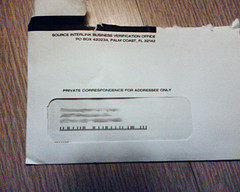 A lot of business owners are not aware of the fraud risks in their businesses and thus may fail to monitor these risks appropriately. A considerable amount of fraud could go unreported or undetected. Business fraud could include checks, credit cards, cash receipts, accounts payable and purchases, wages, salaries and overtime pays, tools, materials and equipment, information and disclosures, data and computer security, advance accounts and petty cash and more.
A lot of business owners are not aware of the fraud risks in their businesses and thus may fail to monitor these risks appropriately. A considerable amount of fraud could go unreported or undetected. Business fraud could include checks, credit cards, cash receipts, accounts payable and purchases, wages, salaries and overtime pays, tools, materials and equipment, information and disclosures, data and computer security, advance accounts and petty cash and more.
The important thing that you can do to minimize business fraud is awareness that it could happen and find ways to limit or prevent it. When it does happen, put the systems in place in order to deal with it. When dealing with this fraud, you should be able to describe and identify scam practices, develop and implement efficient management and audit systems, analyze systems that are possible for fraud, use training and education programs to encourage people to minimize fraud risk, analyze factors that allow fraud or make it easier for fraud to happen.
Indicators of fraud could be used as effective tools to review organizational and business performance regularly. Moreover, it is also vital that organizations and businesses understand the consequences of this crime. With business fraud, several things could happen to a business or organization. These things may include loss of income, increased cost of operation, lower operational effectiveness, credibility damage, inability to meet employee obligations, contractors and suppliers, public criticism, compromise in confidentiality, jeopardized plans and strategies, complaints from customers, clients, contractors and more and increased expenses on wages, salaries and allowances.